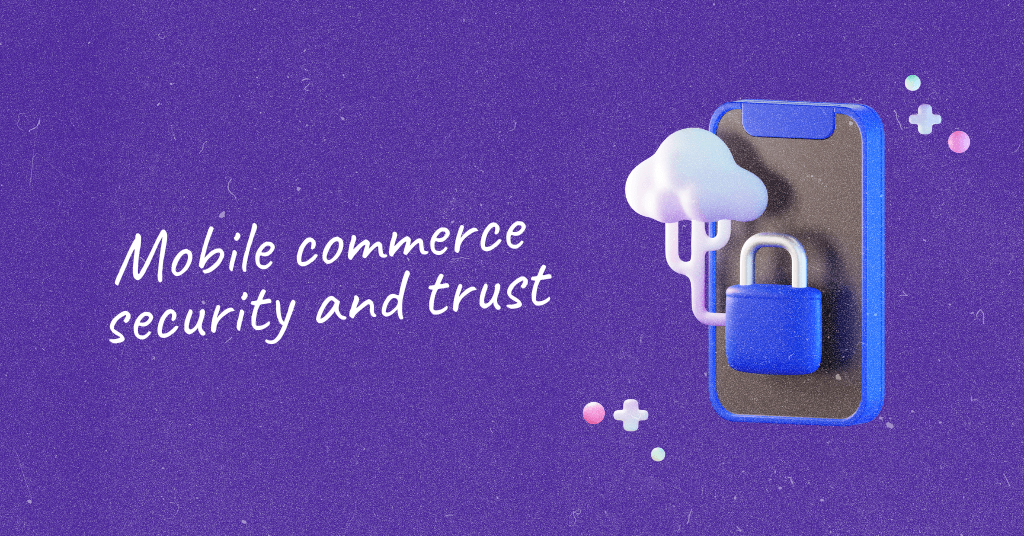
Building trust: Mobile commerce security
The smartphone is not just a device—it’s a marketplace, a wallet, and a window into our most private worlds. With the evolution of mobile commerce (m-commerce), shopping is no longer a weekend affair; it’s an anytime, anywhere convenience. But just as swiftly as this evolution are the growing concerns about mobile commerce security and privacy.
Why mobile commerce?
Simply put, m-commerce is the process of buying and selling goods or services using mobile devices. With the rise of powerful smartphones, user-friendly apps, and blazing-fast 4G & 5G networks, your next purchase is just a click away. This convenience, however, comes with a price: the vulnerability of personal and financial information.
The security challenges
As the digital landscape evolves, m-commerce finds itself grappling with multiple security issues that threaten to undermine consumer trust and business integrity. Let’s see what makes the mobile commerce security an important topic.
Phishing and scams
Ever clicked a link only to find it wasn’t what it seemed? Mobile users are more prone to phishing attacks or misleading apps, making them prime targets.
Amidst the convenience of click-and-buy, deceptive tactics like phishing aim to exploit unsuspecting users and jeopardize their sensitive information.
The dreaded data breach
Headlines of big corporations falling prey to data breaches can shatter trust. If giants with seemingly endless resources are vulnerable, how about smaller retailers?
Compromises in data integrity not only affect a brand’s reputation but also expose users to many risks, making data breaches a huge challenge in m-commerce.
Is encryption enough?
Even as many platforms boast of encryption, not all are robust enough to withstand newer threats. While encryption serves as the first line of defense, the evolving sophistication of cyber threats raises pressing questions about its adequacy in safeguarding transactional data in the m-commerce ecosystem.
Too much access?
Some mobile apps request many permissions. The app permissions sometimes lead users to question whether convenience is overshadowing their privacy and personal boundaries in m-commerce.
Mobile commerce security and trust
If the m-commerce world is a forest of uncertainty, trust is the path that must be paved for users to tread safely. Here’s how it can be built:
Encryption is key
It has to be the strongest available. SSL for data transmission ensures that data is always encrypted, whether it’s in transit or just stored.
In an age where data is as valuable as currency, encryption ensures that every byte of information is shielded, establishing a secure foundation for m-commerce transactions.
Embrace two-factor authentication (2FA)
An extra layer of security, 2FA ensures that the account remains secure. By adding it, 2FA fortifies account security, ensuring that even a compromised password won’t easily grant unauthorized access, thereby enhancing user confidence in m-commerce platforms.
Security audits are non-negotiable
Just as we go for regular health check-ups, regular penetration testing and security assessments keep m-commerce platforms in top health. M-commerce platforms require consistent security audits to detect vulnerabilities and ensure an impenetrable defense against emerging cyber threats.
Say it like it is
In a world filled with complex terminologies and hidden clauses, straightforward communication is a must, ensuring users truly understand how their data is handled and fostering genuine trust in m-commerce platforms. Privacy policies need a makeover. Away with the jargon and legalese, and in with clarity and simplicity. Let users know, in plain language, how their data is used.
Educate the user
A well-informed user is a secure user. Offer tips, guidelines, and updates on how they can keep their data safe. Empowering users with knowledge not only enhances their m-commerce experience but also creates a vigilant community that can recognize and thwart potential threats, bolstering the overall security framework.
Conclusion
M-commerce isn’t just a trend—it’s the future. And like all advancements, it comes with its own set of challenges. But by prioritizing mobile commerce security, ensuring transparency, and constantly innovating to stay ahead of threats, trust in m-commerce can not only be built but also be solidified. In the end, it’s all about making sure the convenience doesn’t come at the cost of peace of mind.
You might wanna read:
How to build customer trust in e-commerce?
Optimizing product pages for impulse buying in e-commerce
Mobile vs. desktop e-commerce traffic: How to improve conversion rates?
Let’s book a 30-min mobile strategy session and give your shop a boost.
Let’s book a 30-min mobile strategy session and give your shop a boost.


